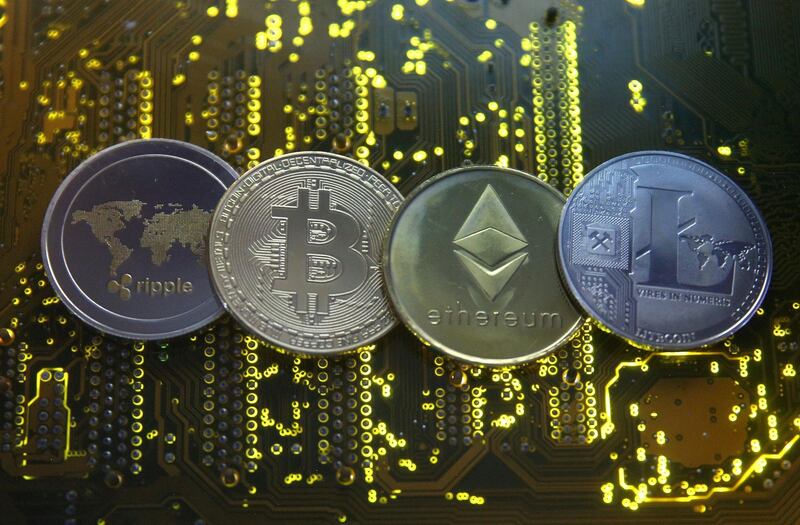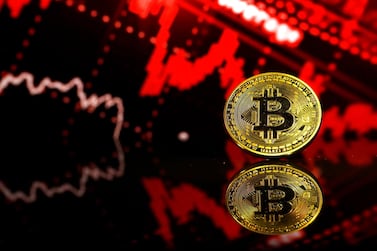The world's third-biggest cryptocurrency XRP plunged in value by more than 25 per cent on Tuesday after a major exchange suspended trading in the digital asset.
Coinbase, the world’s second-biggest crypto exchange by volume, said on Tuesday it will suspend trading of XRP after the US Securities and Exchange Commission last week accused Ripple Labs and its top executives of conducting an unregistered securities offering. The US regulator effectively classified XRP as a security, subjecting it to a much stricter set of regulations governing how it is sold and traded. The move potentially has implications for other cryptocurrencies.
"We will continue to monitor legal developments related to XRP and update our customers as more information becomes available," Paul Grewal, Coinbase's chief legal officer, wrote in a blog post announcing the suspension. "Trading will ... be fully suspended on Tuesday, January 19, 2021, at 10am Pacific Standard Time."
The cryptocurrency trading platform said the suspension will not affect customers’ access to XRP wallets, which will remain available for deposits and withdrawals after trading is suspended.
XRP dropped in value by 27.7 per cent to $0.21821 on the Luxembourg-based Bitstamp exchange by 2.25pm on Tuesday. The third-biggest cryptocurrency by market capitalisation has fallen in value by 66 per cent since its most recent high on November 24. Bitstamp has suspended trading in XRP for US-based customers, as have the OKCoin and Beaxy exchange, among others.
“Coinbase and OKCoin are suspending trading and custody given the SEC news. This situation is not likely to be sorted out any time soon and exchanges want to be on the safe side, asking customers to redeem borrowed value,” said Charles-Henry Monchau, chief investment officer of Geneva-based online bank Flowbank.
“Other exchanges might follow suit, but some such as [Luxembourg-based] Bitstamp might suspend XRP only in the US. This explains the massive pullback as investors are forced to deleverage,” he added.
Arshad Khan, co-founder and chief executive of the Abu Dhabi-based Arabian Bourse cryptocurrency exchange, said decisions on whether to suspend trading are governed by the rules and regulatory authorities in locations where bourses operate.
"Suspension of trading also has a negative effect on investors who are holding open positions. Market integrity and investor protection are two important verticals for any exchange and a perfect balance is required to be maintained between these two verticals," Mr Khan told The National.
According to the lawsuit filed by the SEC last week, Ripple raised $1.3 billion from investors and traders in cryptocurrency markets over seven years through the sale of XRP, without submitting the proper documentation required for such sales.
The SEC’s complaint also alleged that Chris Larsen, Ripple’s co-founder, and chief executive Brad Garlinghouse personally profited to the tune of $600 million by selling their XRP coins during price upswings. The complaint alleged that the pair failed to register their offers and sales of XRP or satisfy any exemption from registration.
In his response via a blog post, Mr Garlinghouse called the SEC suit "an assault on crypto at large". "In this case, XRP is a proxy for every other 'alt-coin' in the space. From there, you have a snowball effect; this isn't good news for any market maker, exchanges like Coinbase etc. This sets a terrible industry-wide precedent for any company working with a digital asset," he wrote.
This saga underscores the prospect of stricter regulatory oversight of digital currencies.
“Regulation is one of the main risks of the crypto industry. Some see the move against XRP as an attack against the whole crypto industry as they first target the one which might be the closest to a security offering,” Mr Monchau added.
With the mainstream adoption of cryptocurrencies, regulators seem to be playing catch up. The cryptocurrencies market is reaching a stage where large financial institutions, banks and well-known corporates are taking the plunge, according to Mr Khan. As participation grows, this demands higher regulatory oversight, he added.
Investors are also shifting to Bitcoin and other digital coins in the wake of the crackdown on XRP. Despite the SEC's action, trading in the world's biggest cryptocurrency has remained resilient, surging in value by more than $4,000 over the weekend, Mr Monchau said. Its value was largely flat at $26,822.26 on Tuesday.
“We saw some weakness in alt-coins following this news, including Ether, which has been massively underperforming Bitcoin over the last few weeks. The Bitcoin bull market seems intact as it became larger than Visa in terms of market cap over the weekend,” he added.








